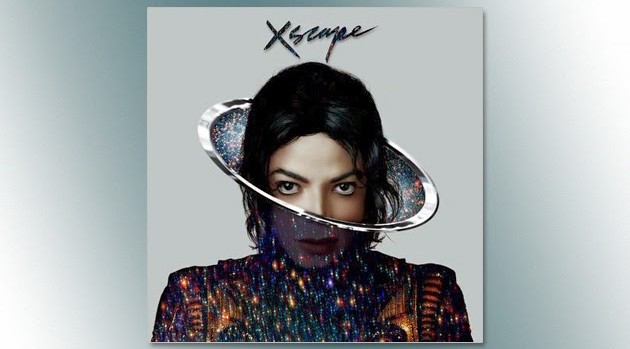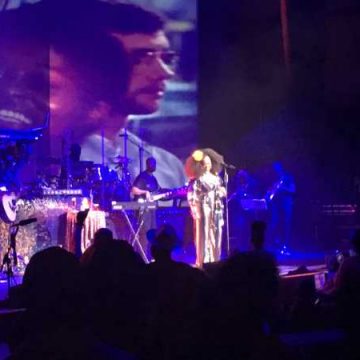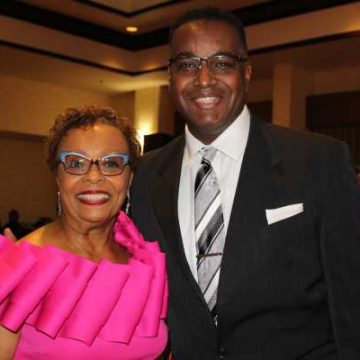From our partners at Consequence of Sound.
There’s literally no reason for Xscape to exist unless you believe that American society requires a new Michael Jackson album to be released every three years or so until the end of civilization. That’s a different thing than saying Xscape is inessential or bad. In fact, the second posthumous release from the Jackson estate has some honest-to-God, capital letter M Moments across its 34-minute runtime. It’s just that there aren’t enough of them to justify its existence, nor are the reinterpretations of them — mostly with Timbaland at the helm — sonically intriguing enough to make Xscape something you’re going to remember by next month, or maybe even tomorrow.
It’s possible that Timbaland was not the best man to helm this project, even despite the fact Epic Records chairman L.A. Reid came to Timbo directly to do precisely that. That’s because Timbaland’s unique signature is all over Xscape, to the album’s detriment. That the deluxe version of the album includes all of the original demos from which the Jackson estate pulled MJ’s vocals does Xscape no favors. Instead, it only highlights the places in which Timbaland’s attempts to wrangle Jackson’s vocals into the 21st century fall with a resounding thud.
“Loving You” and “Blue Gangsta” in particular sound like Timbaland trying to force Xscape into some post-20/20 Experience genealogy, as if Justin Timberlake influenced Michael Jackson and not the other way around. The World’s Fair retro-futurism of that record was played out by JT’s Part 2, and it makes even less sense in Xscape‘s context, where every one of the album’s slight eight tracks plays by different rules, none of which fall in line with the martini-pop aesthetic.
But one commonality across the record is how disassociated Jackson’s vocals sound from the arrangements around him. Some of that is to be expected, of course, what with the vocal tracks having been ripped from demos dating back to 1982. But even making allowances for that fact, listening to Xscape invariably feels like listening to someone pasting Jackson’s vocals over 2014 productions, resulting in an Uncanny Valley feeling at best and unavoidable cringing at worst.
Which is a shame, because Jackson’s vocal tracks are as vibrant and powerful as ever. His whole range is covered across Xscape, from the effervescent, impossibly smooth croon he displayed on his ballads, to the “Dirty Diana” snarl he’d deploy to great effect on his “woman done me wrong” tunes. On the original versions tacked on to Xscape, while Jackson’s musical accompaniment sounds undeniably dated, those transcendent vocal performances at least match the pacing and tone. But on Xscape’s most updated moments, like the spaceship synths and signifying-nothing, sound-and-fury buzz guitar outro of “Do You Know Where Your Children Are” (hold the jokes, plz) or the blorping flatulence synths of “Chicago” and “A Place with No Name,” the impact of those same vocal moments is dulled to child-safe levels.
Listening to those originals, it’s apparent that the album as a whole would have been better served by following the demo formulas more closely. Not to say that the originals are great: they’re often half-formed, half-cocked, half-baked. But the blueprints of those tracks at least fit Jackson’s performances, which are really the only reason to listen to Xscape at all. Instead, we get situations like “A Place with No Name,” which in its original form was a “Horse with No Name” send-up and when updated carries almost no musical signifiers to the America track that birthed it. Or “Chicago,” which trafficked in a patient, smooth groove in its original form but sounds hurried and harried in its album form.
What makes the tone-deaf interpretations of Jackson’s source material all the more confounding is the fact that the album opens with an almost pitch-perfect template of what Jackson in 2014 would and should be. “Love Never Felt So Good” is an almost impossibly great 21st century disco revival jam that changes almost nothing from the Jackson original, opting only to add some killer Studio 54 strings and a neon-lit roller rink percussive backbone. There’s a version tacked onto the deluxe addition that features Justin Timberlake doubling the song’s vocal melody, and it’s everything you hoped a Timberlake/Jackson collaboration would have ever sounded like. It’s probably not a coincidence that “Love Never Felt So Good” is one of only two tracks that doesn’t feature a writing or production credit from Timbaland.
It’s not inaccurate to say that throughout Jackson’s career, he served more to effortlessly define and perfect the pop music of his era than to push new, aggressive trends. So, maybe Xscape as it exists is exactly the type of record Jackson would have made in 2014. But that historical accuracy doesn’t make Xscape a worthwhile record any more than HIStory was in the ’90s. Instead, it probably would have behooved all parties involved to try more to stick to the formulas proposed across the Xscape originals. While those demo versions were almost entirely incomplete, Jackson at least understood and interacted with those arrangements. Instead, we’re left with a record that is, aside from its opener, best described by the withering adjective “inoffensive.”
Essential Tracks: “Love Never Felt So Good.”
Follow @ABCNewsRadio
Copyright 2014 ABC News Radio
 Now Playing
Now Playing


















